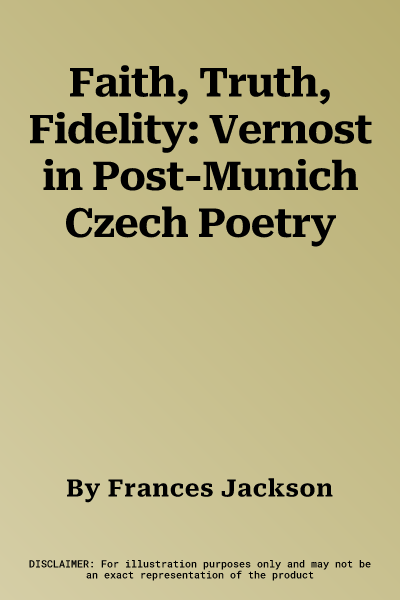Frances Jackson
(Author)Faith, Truth, Fidelity: Vernost in Post-Munich Czech PoetryHardcover, 12 December 2022

Qty
1
Turbo
Ships in 2 - 3 days
Only 4 left
Free Delivery
Cash on Delivery
15 Days
Free Returns
Secure Checkout

Language
English
Publisher
Vandenhoeck & Ruprecht
Date Published
12 Dec 2022
ISBN-10
352536430X
ISBN-13
9783525364307
Description
Product Details
Author:
Book Format:
Hardcover
Country of Origin:
US
Date Published:
12 December 2022
Genre:
Eastern Europe
ISBN-10:
352536430X
ISBN-13:
9783525364307
Language:
English
Location:
Goettingen
Publisher:
Weight:
126996.69 gm